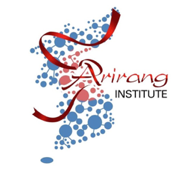중국, LG·SK 분쟁 틈타 한국 배터리 전문인력 '빼가기'
China, leverages LG-SK dispute to “steal” South Korean talent
Source: Yonhap News
정유미 기자 youme@kyunghyang.com
중국의 배터리, 반도체, 항공 업체들이 한국의 전문인력 ‘빼가기’가 갈수록 심해지는 만큼 대책 마련이 필요하다는 지적이 나왔다. 특히 최근 LG화학과 SK이노베이션의 법적 분쟁이 중국 배터리 업체들의 ‘한국 인재 탈취’ 기회로 이용되는 것으로 분석됐다. 한국무역협회는 3일 ‘중국, 인재의 블랙홀’ 보고서에서 중국 기업들이 최근 파격적인 복지 혜택을 제시하며 한국 인재를 집중 유치하고 있다고 밝혔다.
As China's battery, semiconductor and airline companies continue to “steal South Korean talent” and as the situation gets worse the South Korean government desperately needs to implement countermeasures. In particular, the recent legal dispute between LG Chem and SK Innovation is analyzed to be used as an opportunity for Chinese battery makers to "steal South Korean talent." The Korea International Trade Association said in its report, on December 3rd, entitled "China, the Blackhole of Talent" that Chinese companies have recently offered unconventional welfare benefits and are seducing South Korean talent.
보고서에 따르면 중국 정부가 2015년부터 산업고도화 추진 전략인 ‘중국 제조 2025’를 앞세우자 기업들이 해외 우수 인재 유치에 적극적으로 나서고 있다. 대표적인 ‘한국 인재 빼가기’ 업종은 배터리, 반도체, 항공 등이다. 배터리의 경우 세계 1위 기업인 중국 CATL이 지난 7월 대규모 채용을 진행하면서 한국 인재를 대상으로 기존 연봉의 3∼4배를 제시, 전기차 기업인 비야디(BYD)는 연봉 외에 자동차, 숙소 등의 조건을 제공하며 한국 인재 채용을 실시한 것으로 알려졌다.
According to the report, Chinese companies are actively seeking to attract talented people from overseas as the Chinese government has put forward its strategy of "China Manufacturing 2025," which promotes industrial elevation, since 2015; most notably the "stealing of South Korean talent” in such industries that include batteries, semiconductors, and aviation. In the case of batteries, China's CATL, the world's No. 1 company, is known to have offered three to four times the annual salary to South Korean talent while BYD, an electric car company, provided conditions such as cars and accommodation in addition to salary, and hired South Korean talent.
또 중국 최대 부동산그룹 헝다는 올초 신에너지차 기업을 설립하면서 8000여 명의 글로벌 인재를 채용, 특히 한국, 일본, 독일, 스웨덴 등 9개국 출신 경력자를 우대한다고 밝혔다. 보고서는 “글로벌 시장 진출을 본격화한 중국 배터리 업체들이 인재 확보에 총력을 기울이면서 한국 인재들을 타깃으로 삼고 있다”면서 “특히 핵심 기술 침해 및 인재 유출 논란으로 법적 다툼을 벌이는 LG화학과 SK이노베이션의 혼란을 틈타 경쟁력이 높은 한국 전문 인력을 노리고 있다”고 강조했다.
In addition, China's largest real estate group, Hengda, said it will hire some 8,000 people in global talent when it sets up a new energy car company earlier this year, especially favoring experienced people from nine countries, including South Korea, Japan, Germany, and Sweden. "Chinese battery companies are targeting South Korean talent as China is making an all-out effort to secure human resources in the global market," the report said. "China is targeting highly competitive South Korean professionals, especially taking advantage of the confusion of the LG Chem and SK Innovation, which are engaged in legal battles over key technology infringement and human resource leakage controversies."
반도체는 푸젠진화(JHICC)가 지난 4월 인력 채용 공고를 내면서 ‘10년 이상 삼성전자·SK하이닉스에서 엔지니어로 근무한 경력자 우대’를 명시하는 등 인력 빼가기를 노골화한 것으로 나타났다. 앞서 삼성전자는 지난해 중국 반도체 업체로 이직한 D램 설계 담당 전 임원에 대해 전직금지 가처분 소송을 제기했다. 이 임원은 반도체 산업 발전에 기여한 공로를 인정받아 2015년 산업통상자원부 장관 표창장을 받은 인물로 전해졌다.
It has been shown that when JHICC (Joint Development) announced its recruitment of its employees in April, it has made it clear that it will take advantage of those who have worked as engineers at Samsung Electronics and SK Hynix for more than 10 years. Previously, Samsung Electronics filed an injunction against a former executive in charge of designing DRAMs that moved to a Chinese chipmaker last year. The executive is said to have received a commendation from the Minister of Trade, Industry, and Energy in 2015 in recognition of his contribution to the development of the semiconductor industry.
특히 중국 기업들은 전직 금지 관련 소송 등을 피하기 위해 투자회사나 자회사에 취업시키는 형식으로 한국 인재들을 영입해 반도체 인력 유출은 통계로 파악조차 되지 않고 있다는 지적도 나오고 있다. 항공은 2014년부터 올 7월까지 한국에서 460여 명의 조종사가 외국 항공사로 이직, 이 가운데 최소 367명(80%)이 중국 항공사로 간 것으로 집계됐다.
In particular, Chinese companies have recruited South Korean talent in the form of employment at investment companies or subsidiaries to avoid lawsuits related to the ban on former workers, and some point out that the outflow of semiconductor workers cannot even be determined by statistics. Between 2014 and July this year, more than 460 pilots moved to work for foreign airlines, with at least 367 of them (80 percent) going to Chinese airlines.
보고서는 “배터리와 반도체 산업의 고급 인력 유출은 기술 경쟁력 약화를 초래하고, 항공 산업은 안전성 저해, 신규노선 개척 어려움 등의 문제점을 발생시킬 수 있다”면서 “인력 유출 방지와 인재 유치에 대한 장기적인 정책 지원이 필요하다”고 주장했다. 무역협회에 따르면 스위스 국제경영개발대학원(IMD)이 발표한 ‘두뇌유출 지수’에서 한국은 지난해 4.00점을 받아 63개 조사 대상국 중 43위에 그쳤다. 10점 만점의 이 지수는 점수가 낮을수록 해외로 나간 인재가 국내로 돌아오지 않는다는 것을 의미한다.
The report said, "The outflow of advanced manpower in the battery and semiconductor industries could result in a weakening of technological competitiveness, and the aviation industry could pose problems such as a safety barrier and difficulty in exploring new routes. We need long-term policy support to prevent manpower leaks and attract talent," he said. “In the "brain drain index" released by the International Institute for Management Development in Switzerland, South Korea scored 4.00 points last year, ranking 43rd among 63 surveyed countries, according to the Korea International Trade Association. The index, out of a possible 10 points, means that the lower the score, the more talent who went abroad does not return home.


